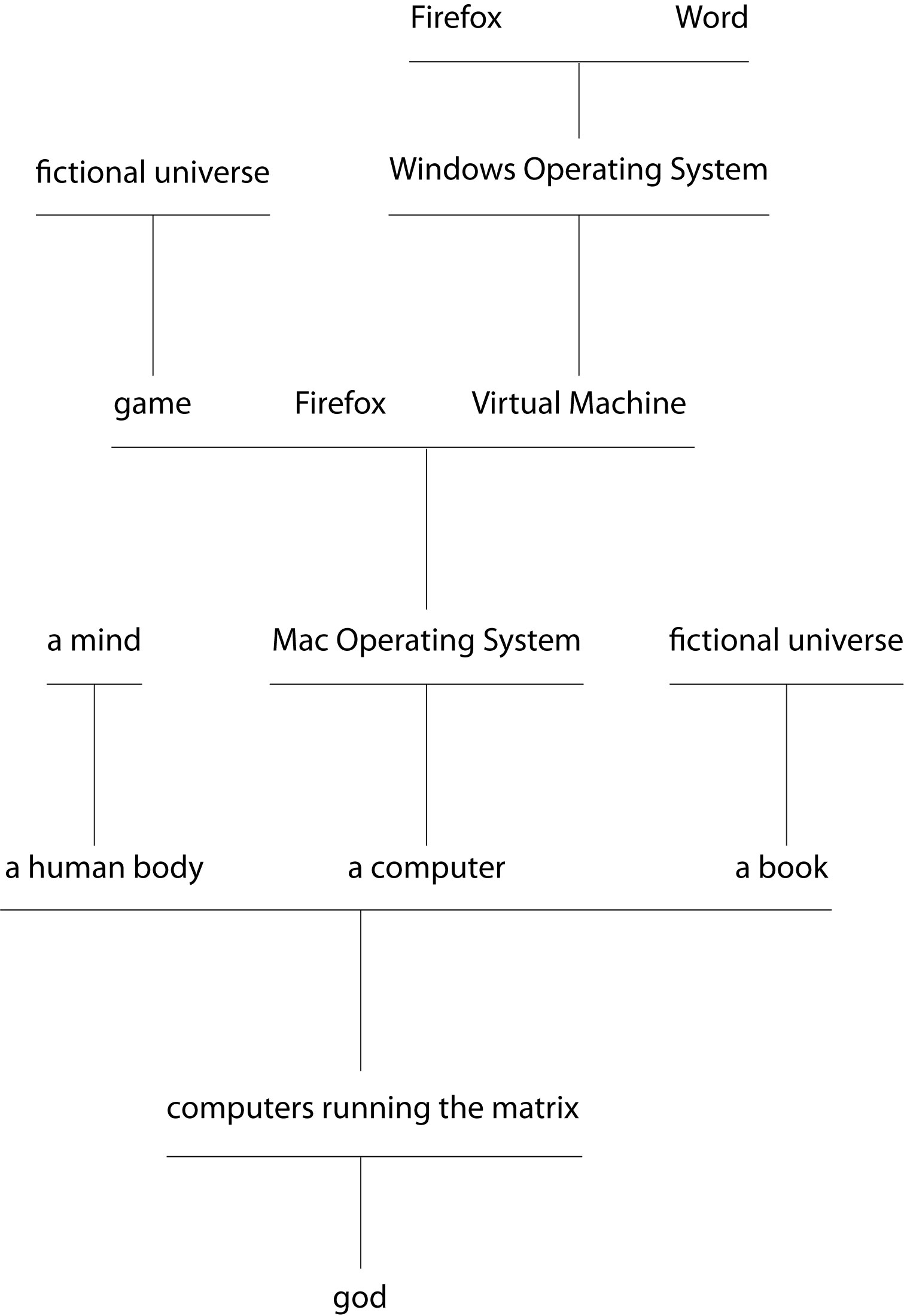Mind and Body as only two out of many conceptual levels
I just watched Ghost in the Shell once again. Love it. Got into a discussion about Mind/Body or Mind/Matter dualism after that – is a person’s mind in some way something non-physical or not? A lot of the talk surrounding this question seems kind of weird to me. Because the way I have come to understand or imagine the world, is that words/concepts like mind, consciousness, thoughts and even emotions are just a handy vocabulary to talk about certain properties of a physical object (like the brain).
This is very similar to the software and hardware of a computer. You can explain 100% of what is on your screen and what calculations are done when you click a button by looking at the hardware and what state it is in what moment of time. But it’s just way more convenient to talk about files and windows instead of a bunch of zeros or ones in a particular order. Analogous, I believe, it would be theoretically possible to explain any state of mind or thought by looking at the state of the brain and maybe some additional physical properties of the world around. But it’s totally not convenient to think about our minds in such terms. Thus, it is a question of at which level you look. The body (including brain) is a conceptual level below the mind and provides a kind of shell for the ghost. Like software couldn’t exist without a physical CD or harddisk to hold it (but it can be moved, and so might also a soul or mind – maybe). So the world is made of only one substance or physicality, but you can talk about it and study it on different conceptual levels.

You can extend this rationale by thinking of the film The Matrix. If it is indeed the case that we all live in some kind of matrix or virtual reality, then this matrix is clearly a level below what we have been calling physical before. So now we have three levels: 1) the computers/machines running the matrix, 2) all the objects and bodies in the matrix, and on top of the bodies 3) the minds of the people. Or also hardware like your cellphone in the matrix (on level 2) that are running software (level 3). So because there are lots of people carrying lots of mind and lots of computers running lots of software, the structure kind of unfolds into a tree structure which you can expand arbitrarily on either side. Either on the root: you can imagine that the real world of the machines running the matrix might not be that real at all, but rather is some sort of simulation on its own. Or in the other direction, at the leaves: you can for example run an application (like Firefox) on top of an Operating System (like Windows), or you can even run a whole Operating System like Windows on top of another Operating System like Mac OS X through making it think it actually runs directly on a physical PC (this technique is called Virtualization).
So we have an ever-expanding tree structure with a host of different ways to create sub-layers. Some examples include a brain providing for a mind, a computer running software or an author writing a book in which there live characters in a world of their own. Obviously, all these worlds on several layers have radically different properties and laws, but it seems possible to order them all in this tree.
The ultimate question is of course: “Does the tree have a root?” i.e. “Is there a lowest layer, under which there is no further layer?”. In many religions, this lowest layer would sort of correspond to a god or a similar being. I might also add, that now you can choose from two different definitions of physical: 1) absolutely physical: in which physical is only that which is on this lowest layer of all, or 2) relatively physical: where physical is simply that which is one layer below another layer (which you might call virtual).
Anyway. I have no idea whether there is indeed one lowest layer, and if so, whether there is a way to prove of a layer that it is actually the lowest. It seems rather difficult indeed. Nonetheless I think it is in human nature to always look for deeper meaning and lower layers. But as the journey is the reward, I guess this is not so grave after all.